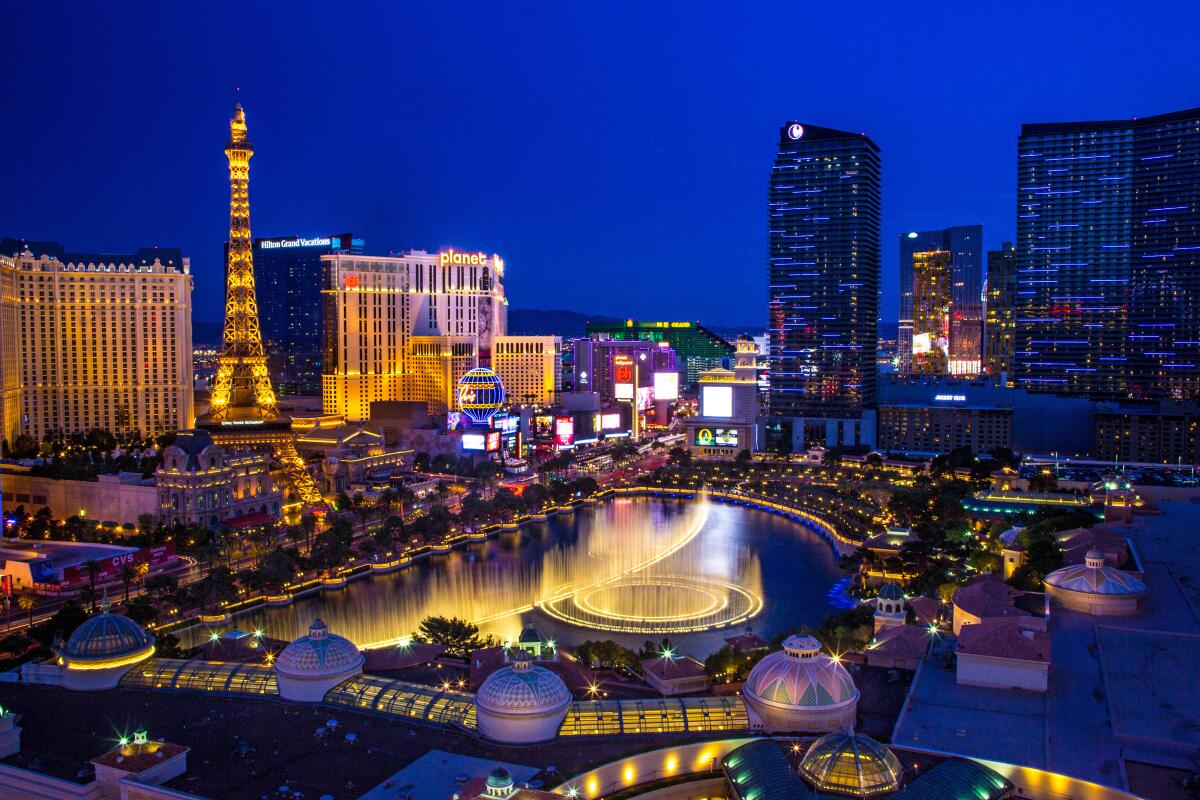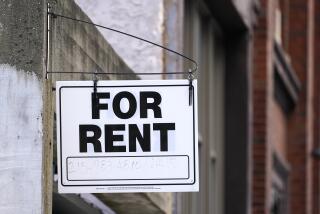Vegas visitors sue the Strip’s biggest hotels, alleging price collusion

Everyone knows you can’t beat the house in Vegas, but now a couple of visitors say you can’t even beat the hotel — and they’re suing.
The biggest hotels on the Las Vegas Strip, including the Bellagio, Caesars Palace and Wynn, are colluding to overcharge visitors for rooms through an algorithm designed to maximize their profits, according to the lawsuit filed Wednesday in federal court in Nevada.
The defendants are MGM Resorts International, Caesars Entertainment, Wynn Resorts Holdings and Treasure Island; the plaintiffs are a pair of frequent visitors to Las Vegas who claim they paid too much for their rooms as a result of an anticompetitive scheme. Also sued were Cendyn Group and its subsidiary Rainmaker Group Unlimited, suppliers of the pricing algorithms.
The suit is the latest in a growing wave of antitrust cases to take aim at algorithmic models or data brokering services allegedly used to facilitate price coordination across an entire industry. The allegations echo dozens of recently filed suits that are hitting the country’s top residential landlords with similar claims.
Hotel operators used to try to fill all their rooms, even if it meant discounting them. With the adoption of the pricing algorithms, the hotels boost room prices, while accepting the loss of revenue from unrented suites, according to the lawsuit.
Search warrant in L.A. corruption scandal came after Venetian casino security alerted FBI of suspicions about councilman gambling with developer
In a competitive market, it would never work, and “a hotel operator with overpriced, empty rooms would eventually go out of business,” lawyers for the plaintiffs wrote in the suit.
But that’s not what’s happening, they say.
Instead, the operators being sued have claimed revenue increases of as much as 15% when they use Rainmaker Group’s products, according to the complaint. Now, about 90% of hotel operators on the Strip use the products, the plaintiffs said.
Travel Weekly found that Las Vegas visitors “paid the highest average daily room rate” in the city’s history in September, “a trend that will likely continue,” the lawyers wrote.
There are about 30 hotels on the four-mile Strip, and the sued operators control at least 20 of them, according to the complaint.
An MGM spokesperson denied any wrongdoing in a statement Thursday.
“The claims against MGM Resorts are factually inaccurate, and we intend to defend ourselves vigorously,” the spokesperson said, calling the allegations “meritless.”
Representatives of Wynn and Cendyn declined to comment. Caesars and Treasure Island didn’t immediately respond to requests for comment.
Rainmaker Group collects an array of data, including pricing information, details of every booking or attempted booking, even the identification of individual visitors, ranking them on the amount they’re likely to spend visiting casinos, according to the complaint.
The algorithm then makes a price recommendation to the hotel, which Rainmaker claims is accepted 90% of the time, the lawyers wrote.
That means the algorithm, “not normal market forces,” sets the prices, they said.
More to Read
Inside the business of entertainment
The Wide Shot brings you news, analysis and insights on everything from streaming wars to production — and what it all means for the future.
You may occasionally receive promotional content from the Los Angeles Times.











